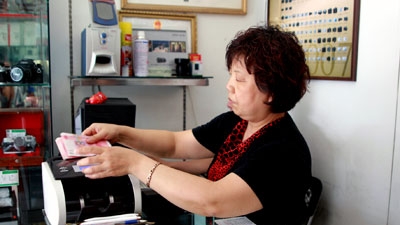Do you use any kind of financial products, such as a bank card?
Do you know how to make a formal complaint when you are not satisfied with the financial services you receive?
Do you feel your rights as a financial consumer are well-protected?
Worldwide, 150 million new consumers join the financial market each year. How to better protect financial consumers has become an important issue for all countries.
To share international best practices in financial consumer protection as well as discussing how to establish a legal framework of it in China, a workshop on “Financial Consumer Protection: Best Practices and Legal Framework” was held in Beijing on January 28, 2013.
The workshop, attended by over 90 officials and professionals from China’s major financial institutions, was co-organized by the People’s Bank of China (PBC) and the World Bank, as part of the Bank’s support to China in protecting the interest of financial consumers, promoting financial access and competition, and maintaining a healthy financial market.
Global financial crisis in 2008 demonstrated that weak consumer protection poses significant risk to wider economy, said Wang Huaqing, PBC’s Commissioner of Discipline Inspection as he opened the workshop. “The need to protect financial consumers has become a common understanding and international trend,” he said.

